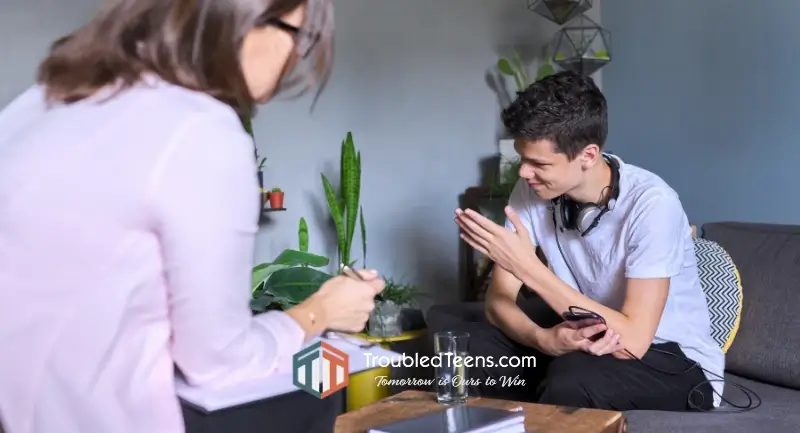Updated on October 1, 2020
COVID-19 caused a worldwide response of closures and impacted schedules. According to a study from The Lancet, over 90% of enrolled students worldwide were unable to finish their education in their schools. Not only did school shift to a new norm of home-based learning, but teens have been expected to socially distance—causing them to feel cut off from their friends. Big events, like sports, dances, award ceremonies, competitions, college campus visits and even graduations have been canceled or rescheduled indefinitely. Things are unsure and we are in unfamiliar territory.
According to The Lancet study, 83% of those who were already diagnosed with a mental illness history said the pandemic had made conditions worse for them. High levels of stress are normal and 83% of teens also reported stress strictly related to the question of school going forward. The American Psychological Association reports that teens are feeling stress more than adults but don’t know what to do about it. And, while the vast majority (estimated 60-80%) of doctor’s visits are for stress-related health issues, studies have found only 3% of doctor’s visits include conversations about stress reduction.
So, how can we help our teens with stress caused by COVID-19?
Work Together to Start a New Routine
Don’t circumvent your teen in deciding a route toward a new normal. You want to include your teen as much as possible, helping create a productive and healthy plan for what schedules and daily life should look like.
Create a Reasonable Schedule
Struggling teens will sleep to all hours of the morning and stay up until the crack of dawn. It might feel pointless, but sleeping and waking on a schedule helps with productivity. Set up times to wake, shower, get dressed, eat meals and exercise. Of course, you don’t’ want to make your home feel like a bootcamp or prison cell, so try to incorporate the schedule as a family. Treat schoolwork time similar to school, turning off TVs and cell phones to help with focus.
Make Space for Family Time
It can be really difficult to connect as a family when you are busy or stressed, so creating that time during a pandemic schedule is very important. Establish dinnertime as your transition between school or daytime activities and evening wind down. Create conversations with your kids at a device-free table for a form of family therapy. If you aren’t sure what to talk about, create conversation starter cards with phrases, like:
“Today I saw a…”
“I am so grateful for…”
“When I was little, I thought…”
Best part/worst part of the day
“I would love to learn how to…”
Answers can be silly, funny or serious. You can encourage longer conversations by making a rule for no one-word answers. Ask questions about the answers, but don’t push too hard and don’t make your teen feel like they answered incorrectly. The game is to get them talking and having fun, not to create a specific response or teaching time. And remember, silence doesn’t have to be a bad thing—don’t always feel the need to fill empty airspace with conversation. Sometimes you can just enjoy the presence of everyone around the table.
Provide Privacy
If you have a struggling or troubled teen, it can be very hard to trust them on their own. But now more than ever, your teen is going to need space. Work on building the trust required to give your teen down time where they can create, hang out virtually or just chill on their device. Allowing them to have more freedom during specific parts of the day can help them feel less isolated.
Always know what your teen is doing online. It can be a place of bullying, drugs and violence, so giving your teen space does not mean ignoring a potential pitfall. Have open conversations with your teen about the importance of being safe online and how important their words are in affecting others online. Make sure you check in with your teen on privacy settings for social media so they aren’t putting too much onlilne.
Talk About News Cycles
Don’t try to keep your teen in the dark. As the parent, you have your child’s best interest at heart and should be the one to explain the difficult news of the day. Take the time to share information with your teen and ease concerns. Don’t dump emotional baggage onto your teen by ranting about these big issues. Instead, help them learn how to think critically and correct any misinformation. Learn how to find trustworthy sources and not just jump on the first story or sensationalized content they see.
Do Regular Mental Checks
Don’t just assume your teen is fine until they say something. Ask.
You should regularly ask your teen about feelings and perceptions of the current circumstance. Don’t assume depression or mental illness can’t happen to your child. Watch for signs of any mental struggling or personality shift that might need more serious action, like schools for troubled teens. If you are concerned about a suicide risk, seek help immediately.
Create Goals and Plans
Don’t let life turn into a standstill while you talk about the things that were. Make sure your teen has goals and plans that you are both actively working towards. Help your teen achieve those goals and keep moving forward with life, considering programs for trouble teens if needed.
Start to Integrate
As things slowly shift towards a more normal state, you will want to help your teen be cautious. The more creative ways you can come up with to create virtual dinner parties or set up online gaming, the less of an uphill battle you will have to face as things open up. There are going to be increasingly more and more activities for your teen to go to and it’s going to get harder to say no. Think ahead about what slowly opening your doors would look like and what timeline you are considering. Help your teen reach out to friends and family alike to be an encouraging force.
If you are struggling with a troubled teenager (or a good kid displaying bad behavior) and really need more help during this time, please reach out! Boarding schools for teens could be an option for you.



















